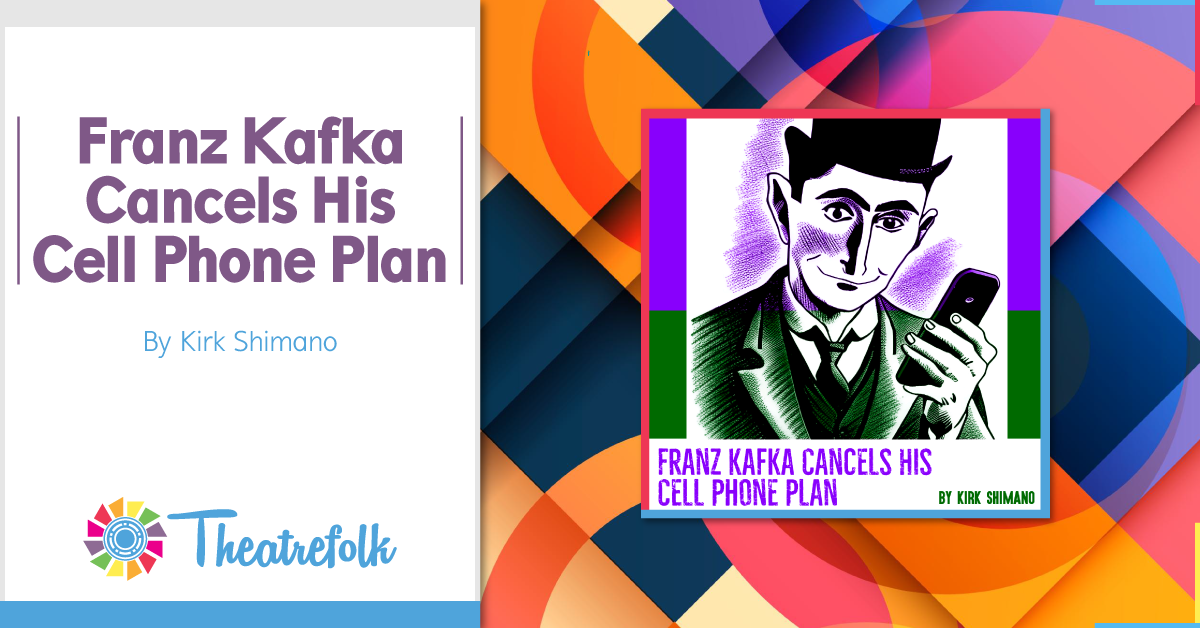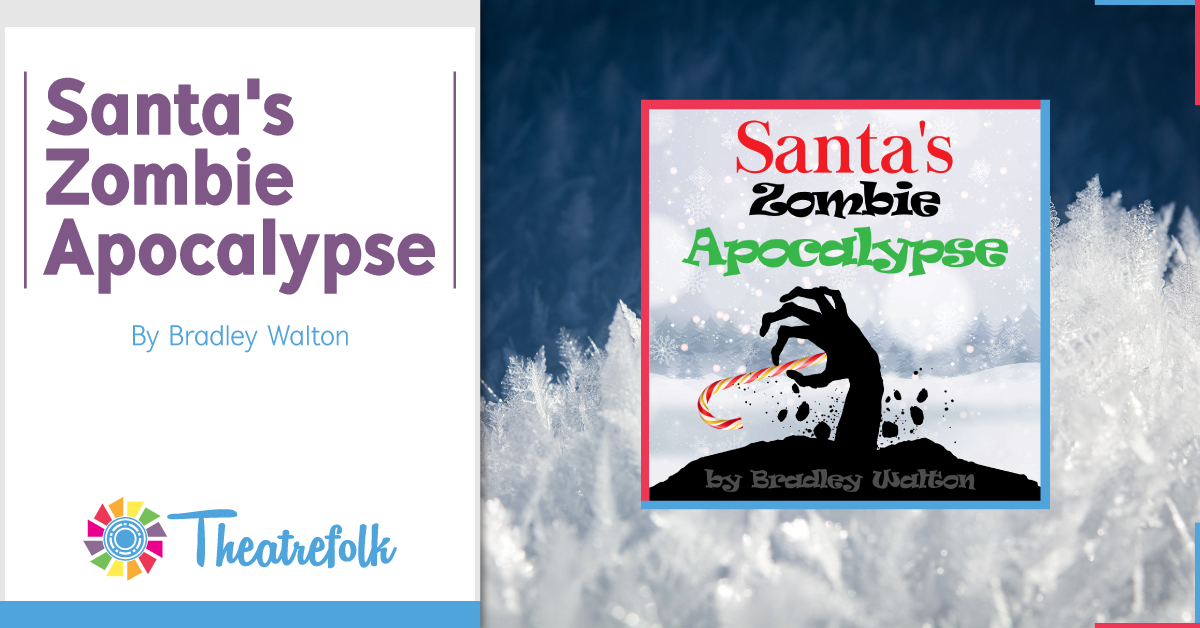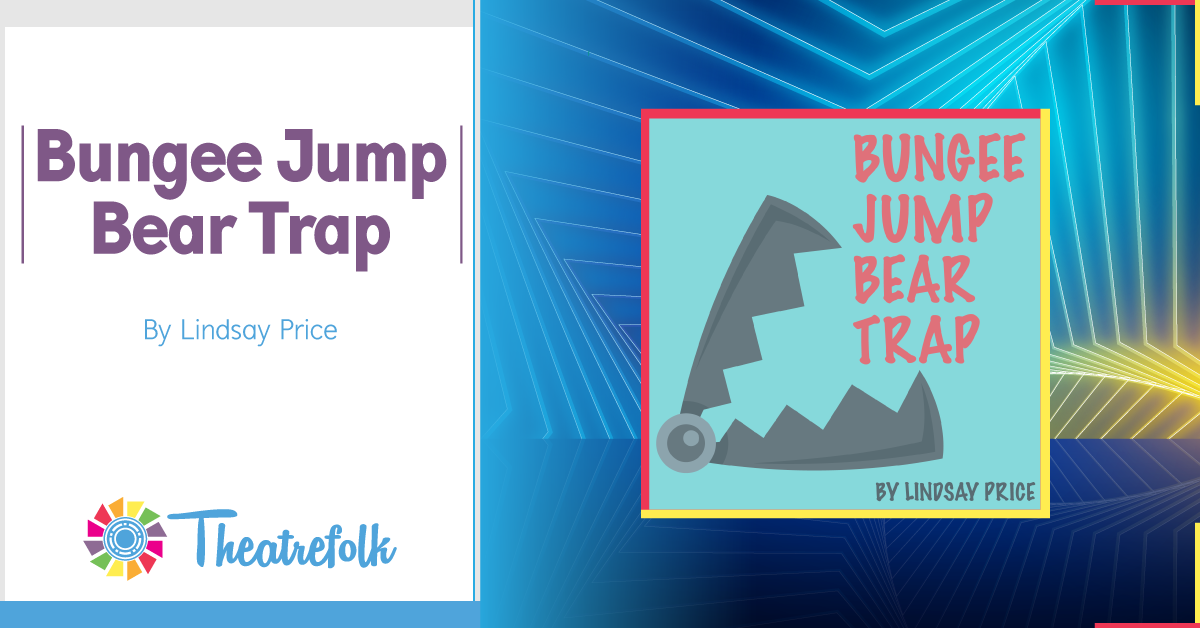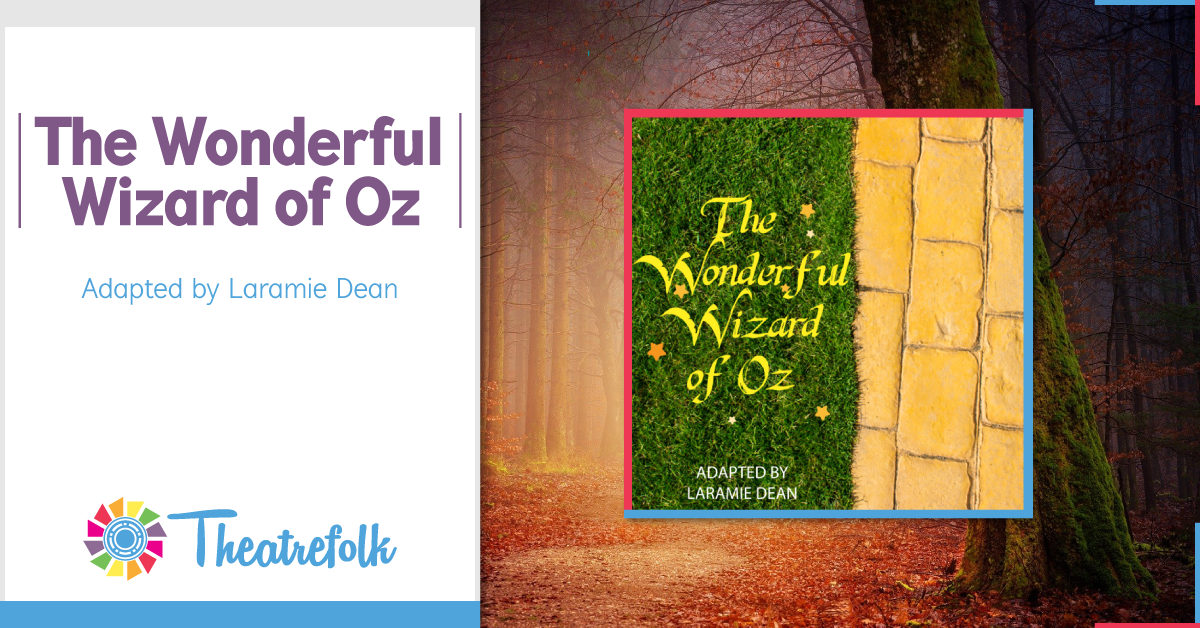Theatrefolk Featured Play - Franz Kafka Cancels His Cell Phone Plan
Welcome to our Featured Play Spotlight! Prepare to embrace the slightly off-balance world of the absurd with Kirk Shimano's Franz Kafka Cancels His Cell Phone Plan. Your students will enjoy stepping into some truly unconventional characters, while revelling in something totally unique.
A modern absurdist play that takes elements from three of Franz Kafka’s works (The Castle, The Trial, and The Metamorphosis) and puts them into the context of the everyday absurdities of our 21st century lives.
Will Franz Kafka ever succeed in escaping his mobile phone contract? Will the Inspector’s mysterious charges ever be revealed? And will someone turn into a giant insect somewhere along the way?
Why did we publish this play?
We love absurd works and it's awesome to be able to introduce students to Franz Kafka in a theatrical format. We also love adaptations, and Kirk is a master at transforming and distilling a text to make it not only theatrical but completely relatable. If you're studying the Theatre of the Absurd, pick up this play to give your students something modern and unique to read as part of your unit. Or if you want something that's never been done before for your next competition, start right here!
Let’s hear from the author!
1. Why did you write this play?
I read The Metamorphosis when I was in high school and it’s a story that has always stuck with me. I was compelled by Kafka’s ability to make the strangest events seem almost mundane. Writing this play was my chance to live in that world for awhile, to take some of our everyday frustrations and elevate them to somewhere fantastical and to take some of the ways our real world feels off kilter and turn them into something fun!
2. Describe the theme in one or two sentences.
This play is about how our institutions can run you in circles and leave you feeling entirely alone, when in fact you are the only one who is seeing reason.
3. What’s the most important visual for you in this play?
Early in the play, Gardena tells Kafka that she does not have a phone while scrolling through her phone. While this is a small moment, I think it encapsulates the tone of the entire play, in which we will be told one thing but clearly shown another. It cuts to the heart of the ways we are sometimes challenged to accept a situation which clearly cannot be true.
4. If you could give one piece of advice for those producing the play, what would it be?
Whenever I revisit Kafka’s writing I am always surprised by how much he undersells the absurdity. In places where we might expect the protagonist to yell with surprise, we instead get a small sigh. I think there might be a temptation to play some of the events in this play broadly to get a big audience reaction, but I would encourage anyone producing the play to always remember that for all of the characters in the play, it’s just a boring regular Monday.
5. Why is this play great for student performers?
I think that each of the characters in this play is strongly distinct from the others, and I hope that each of their lines of dialogue provides a glimpse into their psyches. I think student performers will really enjoy the puzzle of figuring out how to present each character, and then working together to tell the story with them together. I really encourage students to explore a character even if it might not be their standard “type” and give something surprising to the audience.
6. Who is your favourite character in the play?
At heart, I’m definitely a Franz Kafka, because I’m more likely to try to make amends even if the world around me is collapsing. But because I would want to use the casting as a chance to explore another side of me, I would definitely play Gardena. Her ability to see the most amazing event and respond to it with pure boredom is something that I find endlessly entertaining.
7. What is your favourite line in the play?
“What if I am the only one who feels trapped in circles within circles and others would be repulsed to join me?”



